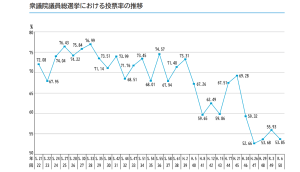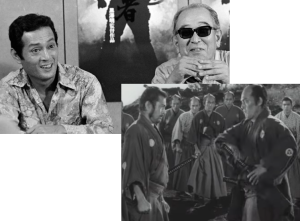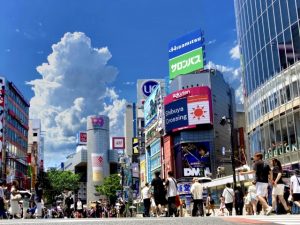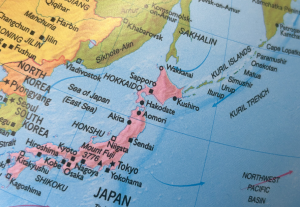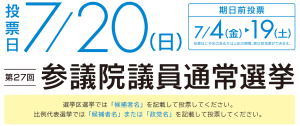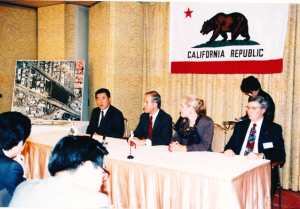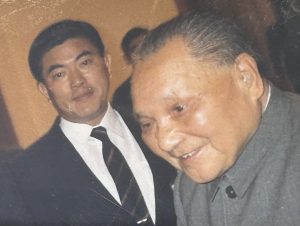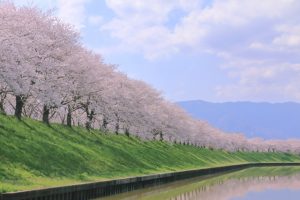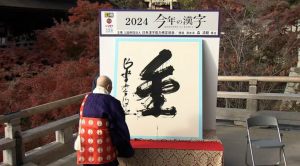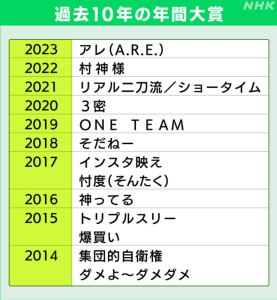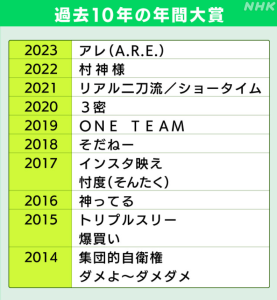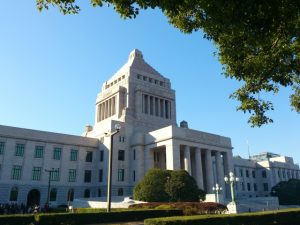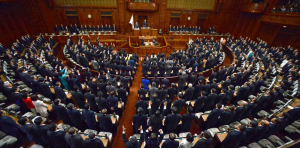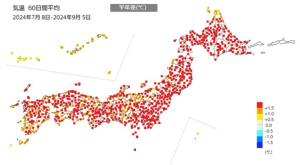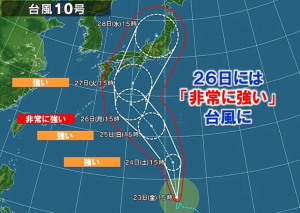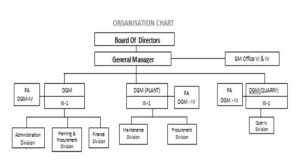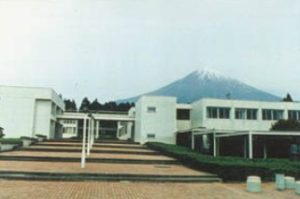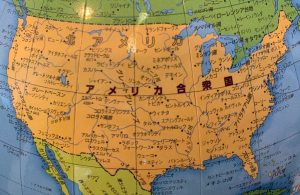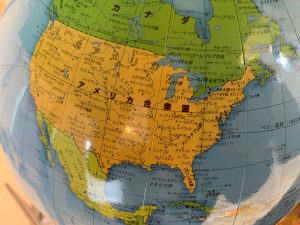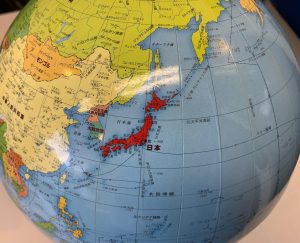Re: Thinking about corporate organization through sports (107) September 29, 2023
This is the last blog delivery of September. The number of monthly deliveries was 5, because this September has 5 Fridays. Incidentally, we have three months left in the fourth quarter, and it is said that the winner is decided by the last three holes of the last day, the last three holes of Sunday Back-Nine, in a four-day professional golf tournament. In that sense, the next three months are extremely important in order to wrap up this year nicely.
By the way, at the Rugby World Cup 2023 in France, the Japan-Samoa match where Japan can’t lose to advance to the knockout stage was held at 4 a.m. on September 29 in Japan time, and I got up early to watch the match on TV. I was nervous until the end, but the result was that Japan won 28-22. And Japan moved one step forward to the match with Argentina for the best 8 on October 8. Great! Great!
I am not familiar with Rugby’s rules, but I realized again that Rugby is an extremely severe sport against fouls, because Rugby is a dangerous sport where the body and the body bump into each other violently.
In the world of sports, of course, the severity to win is the same even in amateur sports, but I think that professional sports, especially individual sports like golf, sumo and so on, have a different level of severity from corporate management. Corporate management in which I have been engaged for many years can be supplemented by organizational power, even if top management has a weak point. But individual sports are self-explanatory and not deceptive, because players fight in public. “Benefiting from the fame of a parent” and so on is, of course, not valid and there is a limit to the support from others. I think that the result is up to the person and a player feels very lonely and the mental pressure.
In professional sumo wrestling held at Ryogoku Kokugikan in September, Atamifuji who is East Maegashira 15 was hugely successful and after a play-off between two wrestlers with 11 wins and 4 losses, Ozeki Takakeisho won his fourth championship. There were some voices complaining that he had changed to the side. But he had the sense of responsibility as an Ozeki in a tournament without Yokozuna, and moved after he saw calmly that Atamifuji was too pumped up. And I felt something similar to “the Book of Five Rings” written by Miyamoto Musashi.
On the other hand, Atamifuji whose performance became a hot topic and popularity soared was defeated at a play-off, but he was splendid because he challenged the Ozeki to a straight-forward contest without any tricks. He was raised in a single parent family, and it seems that his hungry spirit called “he wants to get ahead quickly and make his mother feel better” is a breakthrough force. Incidentally, it is pointed out that he has a habit of kicking sand with his hind legs just before the initial charge. I want him to be strong all round, “physically, mentally and technically” and to have dignity from now, because he is a diamond in the rough that aims to become a Yokozuna at the end.
By the way, considering the characteristics of the Japanese, team sports like Rugby are more suitable for Japanese people compared to individual sports in terms of making use of team play. I feel the same way. It seems to me that this is due to the fact that the Japanese are an agricultural people which has intention to live together in a specific place and help each other, not a hunting people which moves in search for prey from time immemorial. This national character can’t be changed overnight.
This point is also important when considering corporate organization and human resources. The necessity of shift from “membership-type” to “job-type” has been disputed recently.
“Membership-type” leads to traditional lifetime employment. Each type has its merits and demerits, and has good points and shortcomings. The national character of the Japanese is strongly oriented towards stability and less movement of labor between industries and safety nets are also important on the policy side. And retirement pay system is also in place. Under such country and corporate culture, if shift to “job-type” is necessary to compete in the world from now, education that emphasizes diversity and originality from childhood, introduction of gifted program which is special treatment of superpower and genius, and establishing a spirit of friendly competition and improvement like fostering an international sense through study abroad and so on are essential. I think that it is not a choice of two types, and it will be “hybrid-type” evolving “membership-type” as a base in the end.
■The five pillars of economic measures:
Economic measures that Japanese government will draw up by the end of October focus on wage increases and investment promotion. It seems that following pillars will be woven. ①protecting people’s livelihood from high prices ②sustainable wage increases, income improvement and regional growth ③domestic investment promotion that leads to growth power ④overcoming population decline and social reform that turns change into power ⑤national safety and security measures such as national resilience. Comfortable rhetoric is in a queue, but it is not going to happen overnight. On top of that, increasing tax revenues is not enough to finance it, and the government has to rely on deficit government bonds. As a consequence, there are concerns that the financial situation will deteriorate further.
According to monthly economic report in September, the government has maintained its assessment that the domestic economy “is gradually recovering”. Corporate profit has been revised upward to “improve overall”. According to an estimation of the Cabinet Office, it seems that supply and demand gap has turned positive in April to June quarter. Japanese government has compiled a supplementary budget of 140 trillion yen in total for the last three years, in other words, continued to give “antipyretic medicines”. It may have been effective, and the economy has returned to “normal temperature” in general. However, according to BIS, it is said that “Japanese yen” hit a 53-year low since 1970. When the value of a currency decreases, it is seen as a symbol of weakened Japanese national power and economic power. During that period, the debt balance of Japan has more than doubled its GDP. In other words, despite the enormous amount of money invested, I have to say that it has not led to the improvement of the national power of Japan. As its background, I think that there is social structure led to declining birthrate and aging population and population decline and politics postponing problems, lack of development or education of talented persons that can adapt to internationalization and digitalization, presence of various regulations, wasted investment in the construction of public buildings that does not lead to the improvement and resilience of national power. Reflecting on these aspects, if Japan does not try to improve its constitution now that its temperature has returned to normal, Japan may not be able to expect future growth.


